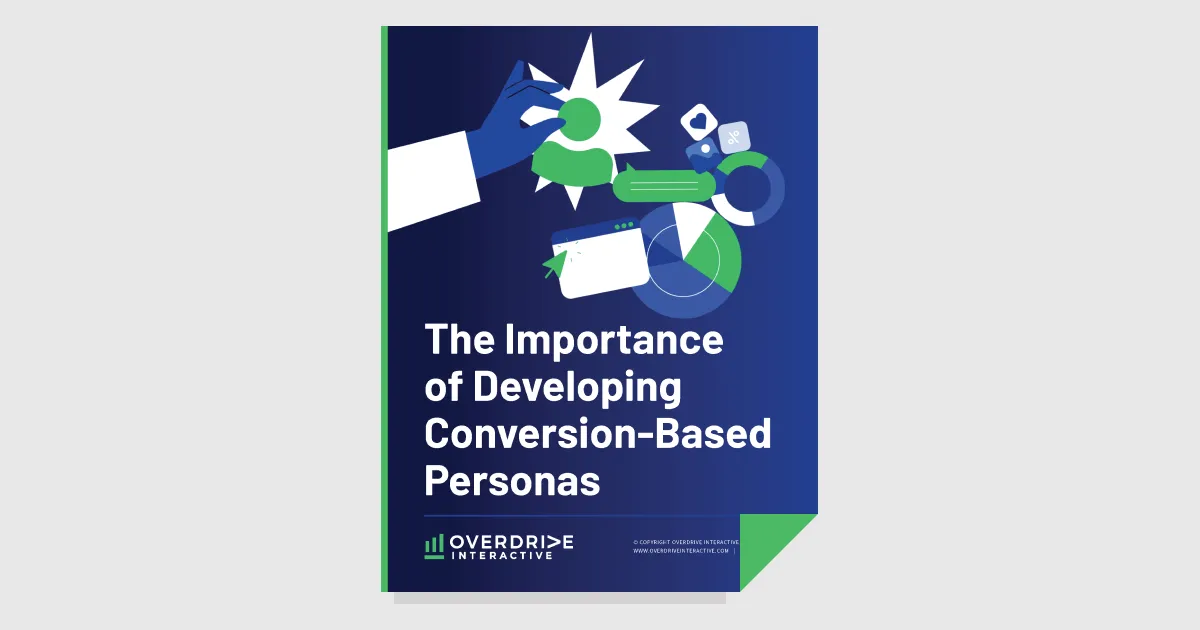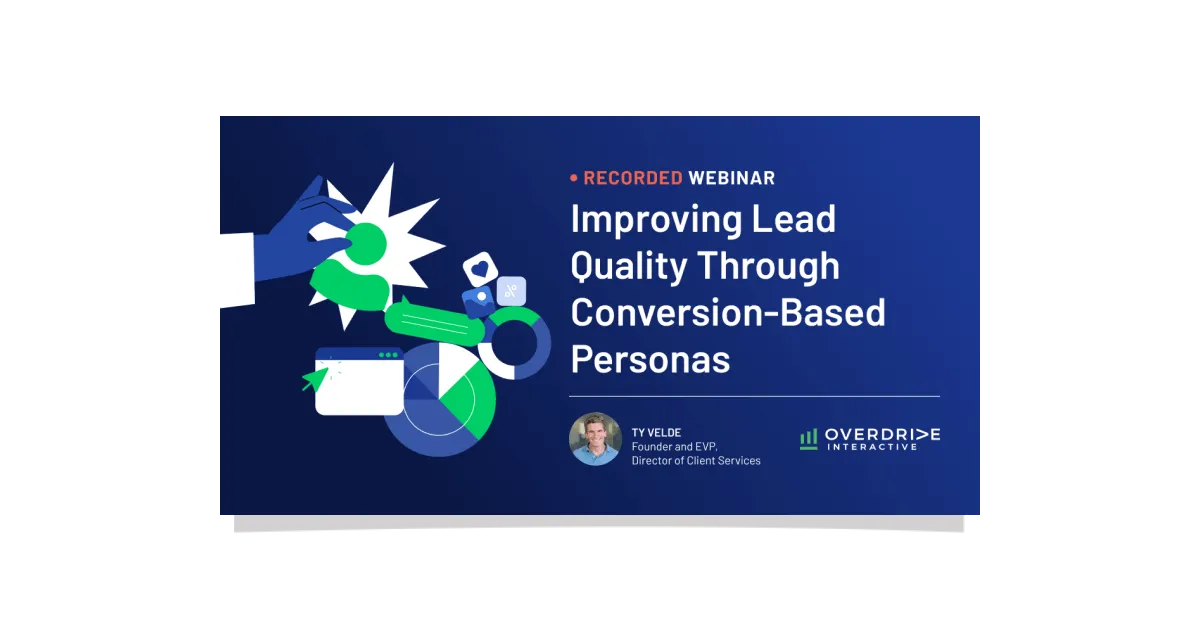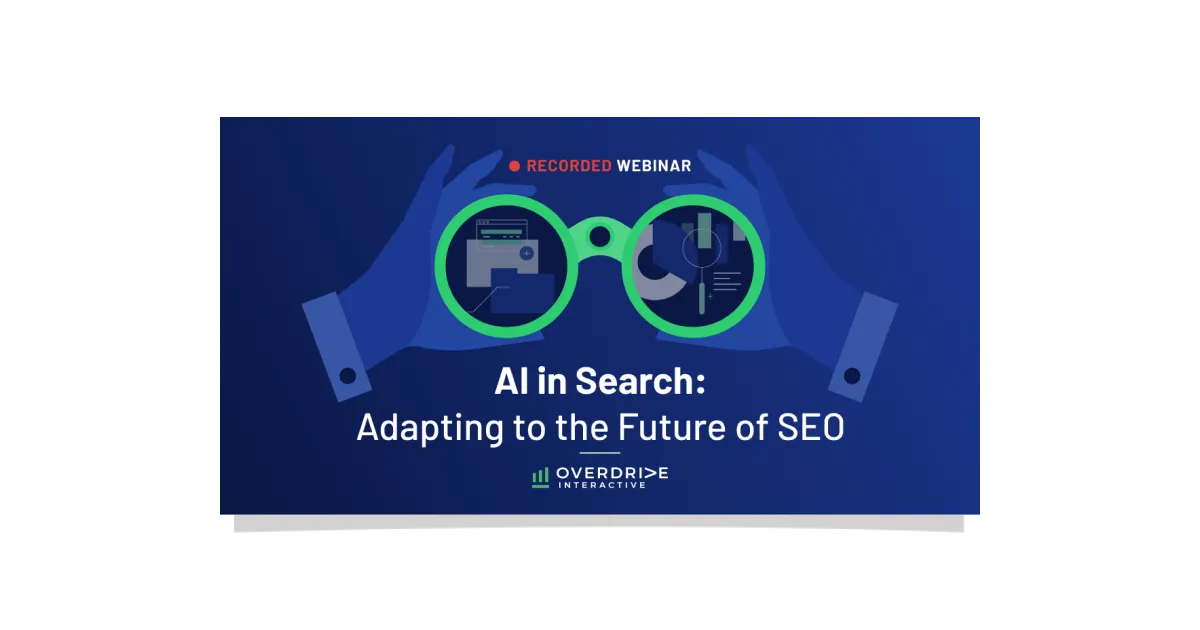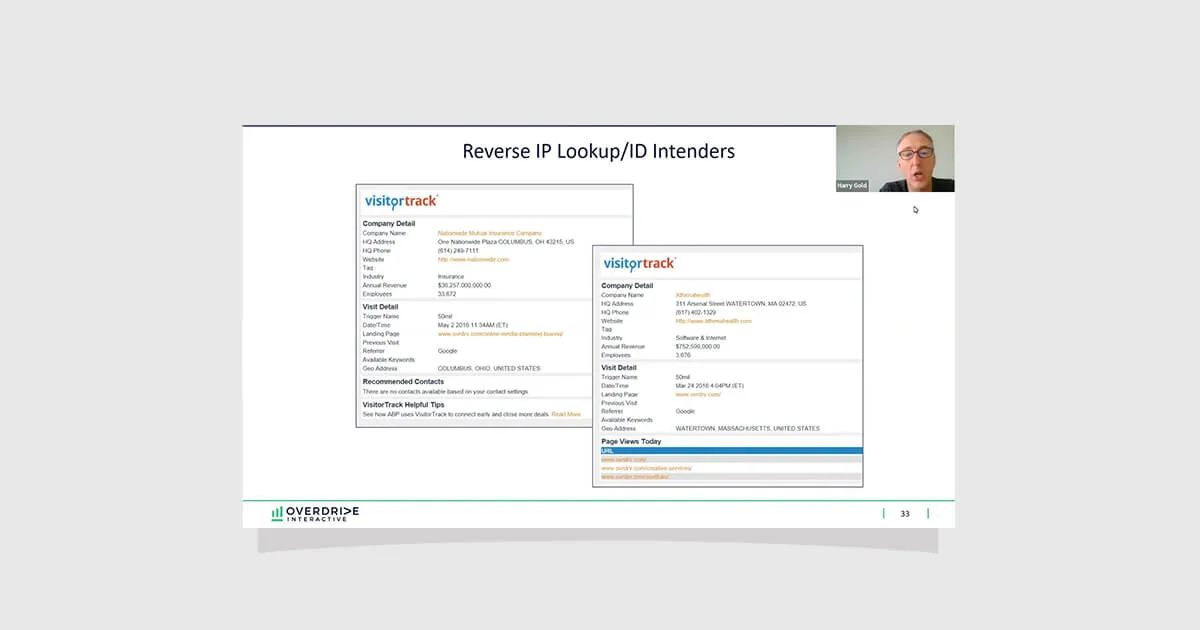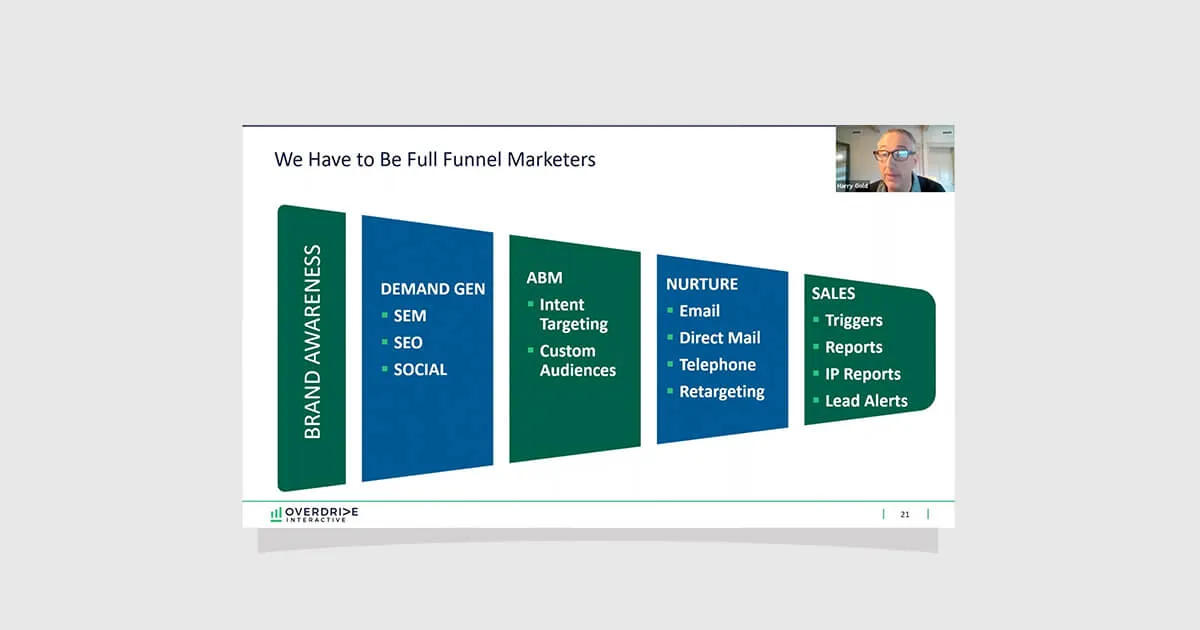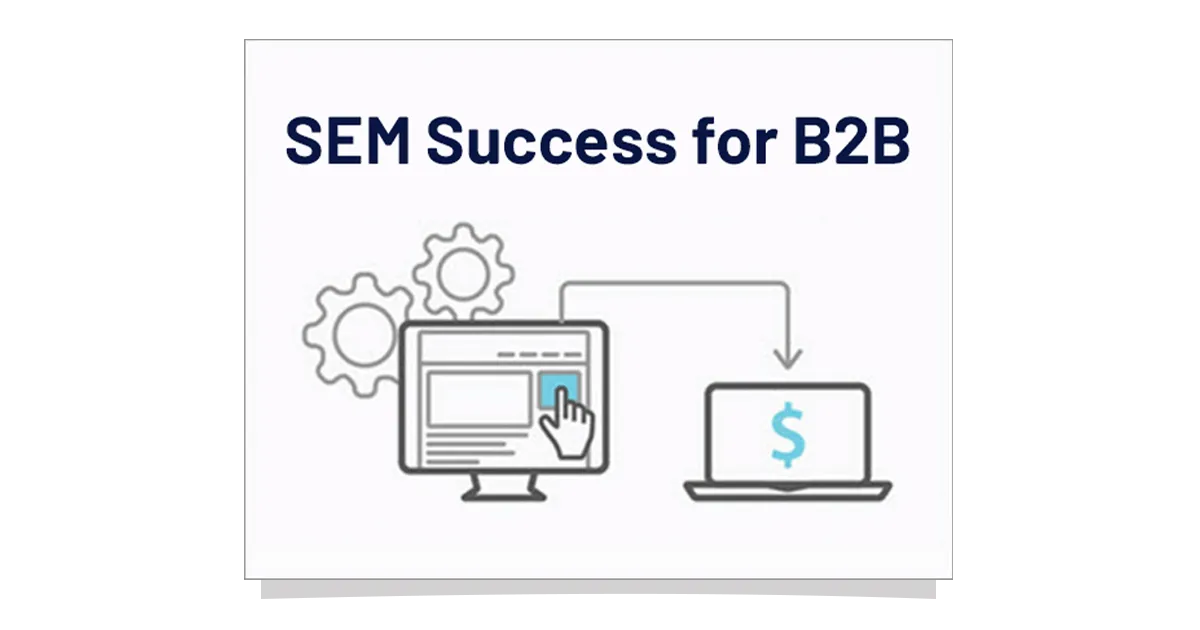Beyond Rankings: Crafting a Comprehensive SEO Strategy That Aligns with A New N-E-E-A-T World

The Importance of an Adaptive SEO Strategy
SEO isn’t a one-and-done task; it requires continuous analysis and adjustments. This adaptability ensures you leverage the latest best practices to meet user expectations while aligning with search engine algorithms. To help you create a robust SEO strategy, we’ve outlined 12 fundamental steps that enhance visibility and address your audience’s needs.
1. Align SEO with Business Goals
Your SEO efforts should support your overall business objectives. Define key performance indicators (KPIs) that measure success, such as organic traffic, keyword rankings, and lead conversions. This alignment ensures that your SEO strategy is focused and effective.
2. Set Realistic Expectations
SEO is a long-term commitment. Results take time, mainly when targeting competitive keywords. Educate stakeholders about the timeline for seeing meaningful outcomes and fostering trust and understanding within your team.
3. Conduct an SEO Audit
Begin by assessing your current SEO status. An SEO audit serves as your roadmap, helping you identify areas for improvement. Examine on-page factors, backlink profiles, and technical SEO aspects to establish a baseline for your strategy.
4. Perform Keyword Research
Keyword research is the cornerstone of SEO. Conduct thorough research to identify relevant keywords that match user intent. Consider search volume and competition levels, and don’t shy away from long-tail keywords that can attract highly targeted traffic.
5. Define Your Most Valuable Pages
Identify which pages on your site drive the most traffic and conversions. Focus on optimizing these “MVP” pages to maximize performance, ensuring they resonate with search engines and users.
6. Keep Content Up to Date
Stale content can hinder your rankings. Implement a process for regularly updating your most important pages to ensure they remain relevant and engaging for users.
7. Optimize for User Experience
A well-structured website enhances user engagement. Prioritize mobile optimization and streamline navigation to improve the overall experience, significantly impacting your SEO success.
8. Conduct a Competitive Analysis
Understanding your competitors can reveal valuable insights. Analyze their strategies, keywords, and backlink profiles to identify opportunities for differentiation and improvement.
9. Establish Brand Authority and Link Building
Building brand authority is essential for earning backlinks and enhancing your online presence. Share valuable content, participate in industry discussions, and engage with influencers to increase your brand’s visibility.
10. Integrate SEO into Your Workflows
SEO should intersect with various departments in your organization, from marketing to IT. Foster collaboration to ensure everyone is aligned and working towards common goals.
11. Align Your SEO Strategy with the Customer Funnel
Your SEO strategy should reflect the customer journey stages—from awareness to post-purchase. Tailor your content to meet users’ needs at each touchpoint, enhancing their experience and driving conversions.
12. Report and Measure Success
Finally, establish metrics for success and regularly report on your progress. Utilize tools to track conversions and refine your strategy based on performance data.

Embracing N-E-E-A-T: The New SEO Standard
As the digital landscape evolves, N-E-E-A-T principles (Notability, Experience, Expertise, Authoritativeness, Trustworthiness, and Transparency) are increasingly vital for effective SEO strategies. These elements guide how search engines evaluate content quality and relevance, emphasizing that brands must establish themselves as credible authorities.
By aligning our SEO strategies with the N-E-E-A-T framework, we ensure that our recommendations aim for higher search rankings and foster genuine user trust. For instance, when we conduct thorough keyword research, we focus on identifying terms that reflect user intent and demonstrate your expertise. This relevance is essential for building authority and trustworthiness—critical components of N-E-E-A-T.
Moreover, our emphasis on defining your most valuable pages allows us to highlight content that showcases your experience and notability, further solidifying your brand’s reputation. We prioritize creating content that addresses specific audience needs, aligning with your business goals to ensure your offerings are visible and valued by potential customers.
As we integrate these principles into every aspect of our SEO approach, we position your brand to thrive in an increasingly competitive environment where users seek authoritative and trustworthy sources of information.
Your SEO Journey Starts Here with Overdrive Interactive
SEO is a complex yet essential aspect of any marketing strategy. At Overdrive Interactive, we apply these same principles to our work, ensuring that our SEO services are tailored to meet each client’s unique needs. We create customized plans that drive meaningful growth by aligning SEO with business goals, setting realistic expectations, and conducting thorough audits.
We believe in continuous optimization and adaptability, leveraging the latest best practices to keep our clients competitive. Our focus on user experience, keyword research, and content relevancy ensures that every aspect of our strategy resonates with target audiences.
If you’re looking to elevate your SEO strategy and drive results, contact Overdrive Interactive. Let us partner with you to navigate the evolving digital marketing landscape and effectively reach your audience. Together, we can turn your SEO challenges into opportunities for success.
Beyond Rankings: Crafting a Comprehensive SEO Strategy That Aligns with A New N-E-E-A-T World

Download the guide to:
The Importance of an Adaptive SEO Strategy
SEO isn’t a one-and-done task; it requires continuous analysis and adjustments. This adaptability ensures you leverage the latest best practices to meet user expectations while aligning with search engine algorithms. To help you create a robust SEO strategy, we’ve outlined 12 fundamental steps that enhance visibility and address your audience’s needs.
1. Align SEO with Business Goals
Your SEO efforts should support your overall business objectives. Define key performance indicators (KPIs) that measure success, such as organic traffic, keyword rankings, and lead conversions. This alignment ensures that your SEO strategy is focused and effective.
2. Set Realistic Expectations
SEO is a long-term commitment. Results take time, mainly when targeting competitive keywords. Educate stakeholders about the timeline for seeing meaningful outcomes and fostering trust and understanding within your team.
3. Conduct an SEO Audit
Begin by assessing your current SEO status. An SEO audit serves as your roadmap, helping you identify areas for improvement. Examine on-page factors, backlink profiles, and technical SEO aspects to establish a baseline for your strategy.
4. Perform Keyword Research
Keyword research is the cornerstone of SEO. Conduct thorough research to identify relevant keywords that match user intent. Consider search volume and competition levels, and don’t shy away from long-tail keywords that can attract highly targeted traffic.
5. Define Your Most Valuable Pages
Identify which pages on your site drive the most traffic and conversions. Focus on optimizing these “MVP” pages to maximize performance, ensuring they resonate with search engines and users.
6. Keep Content Up to Date
Stale content can hinder your rankings. Implement a process for regularly updating your most important pages to ensure they remain relevant and engaging for users.
7. Optimize for User Experience
A well-structured website enhances user engagement. Prioritize mobile optimization and streamline navigation to improve the overall experience, significantly impacting your SEO success.
8. Conduct a Competitive Analysis
Understanding your competitors can reveal valuable insights. Analyze their strategies, keywords, and backlink profiles to identify opportunities for differentiation and improvement.
9. Establish Brand Authority and Link Building
Building brand authority is essential for earning backlinks and enhancing your online presence. Share valuable content, participate in industry discussions, and engage with influencers to increase your brand’s visibility.
10. Integrate SEO into Your Workflows
SEO should intersect with various departments in your organization, from marketing to IT. Foster collaboration to ensure everyone is aligned and working towards common goals.
11. Align Your SEO Strategy with the Customer Funnel
Your SEO strategy should reflect the customer journey stages—from awareness to post-purchase. Tailor your content to meet users’ needs at each touchpoint, enhancing their experience and driving conversions.
12. Report and Measure Success
Finally, establish metrics for success and regularly report on your progress. Utilize tools to track conversions and refine your strategy based on performance data.

Embracing N-E-E-A-T: The New SEO Standard
As the digital landscape evolves, N-E-E-A-T principles (Notability, Experience, Expertise, Authoritativeness, Trustworthiness, and Transparency) are increasingly vital for effective SEO strategies. These elements guide how search engines evaluate content quality and relevance, emphasizing that brands must establish themselves as credible authorities.
By aligning our SEO strategies with the N-E-E-A-T framework, we ensure that our recommendations aim for higher search rankings and foster genuine user trust. For instance, when we conduct thorough keyword research, we focus on identifying terms that reflect user intent and demonstrate your expertise. This relevance is essential for building authority and trustworthiness—critical components of N-E-E-A-T.
Moreover, our emphasis on defining your most valuable pages allows us to highlight content that showcases your experience and notability, further solidifying your brand’s reputation. We prioritize creating content that addresses specific audience needs, aligning with your business goals to ensure your offerings are visible and valued by potential customers.
As we integrate these principles into every aspect of our SEO approach, we position your brand to thrive in an increasingly competitive environment where users seek authoritative and trustworthy sources of information.
Your SEO Journey Starts Here with Overdrive Interactive
SEO is a complex yet essential aspect of any marketing strategy. At Overdrive Interactive, we apply these same principles to our work, ensuring that our SEO services are tailored to meet each client’s unique needs. We create customized plans that drive meaningful growth by aligning SEO with business goals, setting realistic expectations, and conducting thorough audits.
We believe in continuous optimization and adaptability, leveraging the latest best practices to keep our clients competitive. Our focus on user experience, keyword research, and content relevancy ensures that every aspect of our strategy resonates with target audiences.
If you’re looking to elevate your SEO strategy and drive results, contact Overdrive Interactive. Let us partner with you to navigate the evolving digital marketing landscape and effectively reach your audience. Together, we can turn your SEO challenges into opportunities for success.
Beyond Rankings: Crafting a Comprehensive SEO Strategy That Aligns with A New N-E-E-A-T World

Download the guide to:
The Importance of an Adaptive SEO Strategy
SEO isn’t a one-and-done task; it requires continuous analysis and adjustments. This adaptability ensures you leverage the latest best practices to meet user expectations while aligning with search engine algorithms. To help you create a robust SEO strategy, we’ve outlined 12 fundamental steps that enhance visibility and address your audience’s needs.
1. Align SEO with Business Goals
Your SEO efforts should support your overall business objectives. Define key performance indicators (KPIs) that measure success, such as organic traffic, keyword rankings, and lead conversions. This alignment ensures that your SEO strategy is focused and effective.
2. Set Realistic Expectations
SEO is a long-term commitment. Results take time, mainly when targeting competitive keywords. Educate stakeholders about the timeline for seeing meaningful outcomes and fostering trust and understanding within your team.
3. Conduct an SEO Audit
Begin by assessing your current SEO status. An SEO audit serves as your roadmap, helping you identify areas for improvement. Examine on-page factors, backlink profiles, and technical SEO aspects to establish a baseline for your strategy.
4. Perform Keyword Research
Keyword research is the cornerstone of SEO. Conduct thorough research to identify relevant keywords that match user intent. Consider search volume and competition levels, and don’t shy away from long-tail keywords that can attract highly targeted traffic.
5. Define Your Most Valuable Pages
Identify which pages on your site drive the most traffic and conversions. Focus on optimizing these “MVP” pages to maximize performance, ensuring they resonate with search engines and users.
6. Keep Content Up to Date
Stale content can hinder your rankings. Implement a process for regularly updating your most important pages to ensure they remain relevant and engaging for users.
7. Optimize for User Experience
A well-structured website enhances user engagement. Prioritize mobile optimization and streamline navigation to improve the overall experience, significantly impacting your SEO success.
8. Conduct a Competitive Analysis
Understanding your competitors can reveal valuable insights. Analyze their strategies, keywords, and backlink profiles to identify opportunities for differentiation and improvement.
9. Establish Brand Authority and Link Building
Building brand authority is essential for earning backlinks and enhancing your online presence. Share valuable content, participate in industry discussions, and engage with influencers to increase your brand’s visibility.
10. Integrate SEO into Your Workflows
SEO should intersect with various departments in your organization, from marketing to IT. Foster collaboration to ensure everyone is aligned and working towards common goals.
11. Align Your SEO Strategy with the Customer Funnel
Your SEO strategy should reflect the customer journey stages—from awareness to post-purchase. Tailor your content to meet users’ needs at each touchpoint, enhancing their experience and driving conversions.
12. Report and Measure Success
Finally, establish metrics for success and regularly report on your progress. Utilize tools to track conversions and refine your strategy based on performance data.

Embracing N-E-E-A-T: The New SEO Standard
As the digital landscape evolves, N-E-E-A-T principles (Notability, Experience, Expertise, Authoritativeness, Trustworthiness, and Transparency) are increasingly vital for effective SEO strategies. These elements guide how search engines evaluate content quality and relevance, emphasizing that brands must establish themselves as credible authorities.
By aligning our SEO strategies with the N-E-E-A-T framework, we ensure that our recommendations aim for higher search rankings and foster genuine user trust. For instance, when we conduct thorough keyword research, we focus on identifying terms that reflect user intent and demonstrate your expertise. This relevance is essential for building authority and trustworthiness—critical components of N-E-E-A-T.
Moreover, our emphasis on defining your most valuable pages allows us to highlight content that showcases your experience and notability, further solidifying your brand’s reputation. We prioritize creating content that addresses specific audience needs, aligning with your business goals to ensure your offerings are visible and valued by potential customers.
As we integrate these principles into every aspect of our SEO approach, we position your brand to thrive in an increasingly competitive environment where users seek authoritative and trustworthy sources of information.
Your SEO Journey Starts Here with Overdrive Interactive
SEO is a complex yet essential aspect of any marketing strategy. At Overdrive Interactive, we apply these same principles to our work, ensuring that our SEO services are tailored to meet each client’s unique needs. We create customized plans that drive meaningful growth by aligning SEO with business goals, setting realistic expectations, and conducting thorough audits.
We believe in continuous optimization and adaptability, leveraging the latest best practices to keep our clients competitive. Our focus on user experience, keyword research, and content relevancy ensures that every aspect of our strategy resonates with target audiences.
If you’re looking to elevate your SEO strategy and drive results, contact Overdrive Interactive. Let us partner with you to navigate the evolving digital marketing landscape and effectively reach your audience. Together, we can turn your SEO challenges into opportunities for success.
Beyond Rankings: Crafting a Comprehensive SEO Strategy That Aligns with A New N-E-E-A-T World

Key Insights From Our Research
The Importance of an Adaptive SEO Strategy
SEO isn’t a one-and-done task; it requires continuous analysis and adjustments. This adaptability ensures you leverage the latest best practices to meet user expectations while aligning with search engine algorithms. To help you create a robust SEO strategy, we’ve outlined 12 fundamental steps that enhance visibility and address your audience’s needs.
1. Align SEO with Business Goals
Your SEO efforts should support your overall business objectives. Define key performance indicators (KPIs) that measure success, such as organic traffic, keyword rankings, and lead conversions. This alignment ensures that your SEO strategy is focused and effective.
2. Set Realistic Expectations
SEO is a long-term commitment. Results take time, mainly when targeting competitive keywords. Educate stakeholders about the timeline for seeing meaningful outcomes and fostering trust and understanding within your team.
3. Conduct an SEO Audit
Begin by assessing your current SEO status. An SEO audit serves as your roadmap, helping you identify areas for improvement. Examine on-page factors, backlink profiles, and technical SEO aspects to establish a baseline for your strategy.
4. Perform Keyword Research
Keyword research is the cornerstone of SEO. Conduct thorough research to identify relevant keywords that match user intent. Consider search volume and competition levels, and don’t shy away from long-tail keywords that can attract highly targeted traffic.
5. Define Your Most Valuable Pages
Identify which pages on your site drive the most traffic and conversions. Focus on optimizing these “MVP” pages to maximize performance, ensuring they resonate with search engines and users.
6. Keep Content Up to Date
Stale content can hinder your rankings. Implement a process for regularly updating your most important pages to ensure they remain relevant and engaging for users.
7. Optimize for User Experience
A well-structured website enhances user engagement. Prioritize mobile optimization and streamline navigation to improve the overall experience, significantly impacting your SEO success.
8. Conduct a Competitive Analysis
Understanding your competitors can reveal valuable insights. Analyze their strategies, keywords, and backlink profiles to identify opportunities for differentiation and improvement.
9. Establish Brand Authority and Link Building
Building brand authority is essential for earning backlinks and enhancing your online presence. Share valuable content, participate in industry discussions, and engage with influencers to increase your brand’s visibility.
10. Integrate SEO into Your Workflows
SEO should intersect with various departments in your organization, from marketing to IT. Foster collaboration to ensure everyone is aligned and working towards common goals.
11. Align Your SEO Strategy with the Customer Funnel
Your SEO strategy should reflect the customer journey stages—from awareness to post-purchase. Tailor your content to meet users’ needs at each touchpoint, enhancing their experience and driving conversions.
12. Report and Measure Success
Finally, establish metrics for success and regularly report on your progress. Utilize tools to track conversions and refine your strategy based on performance data.

Embracing N-E-E-A-T: The New SEO Standard
As the digital landscape evolves, N-E-E-A-T principles (Notability, Experience, Expertise, Authoritativeness, Trustworthiness, and Transparency) are increasingly vital for effective SEO strategies. These elements guide how search engines evaluate content quality and relevance, emphasizing that brands must establish themselves as credible authorities.
By aligning our SEO strategies with the N-E-E-A-T framework, we ensure that our recommendations aim for higher search rankings and foster genuine user trust. For instance, when we conduct thorough keyword research, we focus on identifying terms that reflect user intent and demonstrate your expertise. This relevance is essential for building authority and trustworthiness—critical components of N-E-E-A-T.
Moreover, our emphasis on defining your most valuable pages allows us to highlight content that showcases your experience and notability, further solidifying your brand’s reputation. We prioritize creating content that addresses specific audience needs, aligning with your business goals to ensure your offerings are visible and valued by potential customers.
As we integrate these principles into every aspect of our SEO approach, we position your brand to thrive in an increasingly competitive environment where users seek authoritative and trustworthy sources of information.
Your SEO Journey Starts Here with Overdrive Interactive
SEO is a complex yet essential aspect of any marketing strategy. At Overdrive Interactive, we apply these same principles to our work, ensuring that our SEO services are tailored to meet each client’s unique needs. We create customized plans that drive meaningful growth by aligning SEO with business goals, setting realistic expectations, and conducting thorough audits.
We believe in continuous optimization and adaptability, leveraging the latest best practices to keep our clients competitive. Our focus on user experience, keyword research, and content relevancy ensures that every aspect of our strategy resonates with target audiences.
If you’re looking to elevate your SEO strategy and drive results, contact Overdrive Interactive. Let us partner with you to navigate the evolving digital marketing landscape and effectively reach your audience. Together, we can turn your SEO challenges into opportunities for success.
Beyond Rankings: Crafting a Comprehensive SEO Strategy That Aligns with A New N-E-E-A-T World
Get the Complete Whitepaper
Beyond Rankings: Crafting a Comprehensive SEO Strategy That Aligns with A New N-E-E-A-T World
The Importance of an Adaptive SEO Strategy
SEO isn’t a one-and-done task; it requires continuous analysis and adjustments. This adaptability ensures you leverage the latest best practices to meet user expectations while aligning with search engine algorithms. To help you create a robust SEO strategy, we’ve outlined 12 fundamental steps that enhance visibility and address your audience’s needs.
1. Align SEO with Business Goals
Your SEO efforts should support your overall business objectives. Define key performance indicators (KPIs) that measure success, such as organic traffic, keyword rankings, and lead conversions. This alignment ensures that your SEO strategy is focused and effective.
2. Set Realistic Expectations
SEO is a long-term commitment. Results take time, mainly when targeting competitive keywords. Educate stakeholders about the timeline for seeing meaningful outcomes and fostering trust and understanding within your team.
3. Conduct an SEO Audit
Begin by assessing your current SEO status. An SEO audit serves as your roadmap, helping you identify areas for improvement. Examine on-page factors, backlink profiles, and technical SEO aspects to establish a baseline for your strategy.
4. Perform Keyword Research
Keyword research is the cornerstone of SEO. Conduct thorough research to identify relevant keywords that match user intent. Consider search volume and competition levels, and don’t shy away from long-tail keywords that can attract highly targeted traffic.
5. Define Your Most Valuable Pages
Identify which pages on your site drive the most traffic and conversions. Focus on optimizing these “MVP” pages to maximize performance, ensuring they resonate with search engines and users.
6. Keep Content Up to Date
Stale content can hinder your rankings. Implement a process for regularly updating your most important pages to ensure they remain relevant and engaging for users.
7. Optimize for User Experience
A well-structured website enhances user engagement. Prioritize mobile optimization and streamline navigation to improve the overall experience, significantly impacting your SEO success.
8. Conduct a Competitive Analysis
Understanding your competitors can reveal valuable insights. Analyze their strategies, keywords, and backlink profiles to identify opportunities for differentiation and improvement.
9. Establish Brand Authority and Link Building
Building brand authority is essential for earning backlinks and enhancing your online presence. Share valuable content, participate in industry discussions, and engage with influencers to increase your brand’s visibility.
10. Integrate SEO into Your Workflows
SEO should intersect with various departments in your organization, from marketing to IT. Foster collaboration to ensure everyone is aligned and working towards common goals.
11. Align Your SEO Strategy with the Customer Funnel
Your SEO strategy should reflect the customer journey stages—from awareness to post-purchase. Tailor your content to meet users’ needs at each touchpoint, enhancing their experience and driving conversions.
12. Report and Measure Success
Finally, establish metrics for success and regularly report on your progress. Utilize tools to track conversions and refine your strategy based on performance data.

Embracing N-E-E-A-T: The New SEO Standard
As the digital landscape evolves, N-E-E-A-T principles (Notability, Experience, Expertise, Authoritativeness, Trustworthiness, and Transparency) are increasingly vital for effective SEO strategies. These elements guide how search engines evaluate content quality and relevance, emphasizing that brands must establish themselves as credible authorities.
By aligning our SEO strategies with the N-E-E-A-T framework, we ensure that our recommendations aim for higher search rankings and foster genuine user trust. For instance, when we conduct thorough keyword research, we focus on identifying terms that reflect user intent and demonstrate your expertise. This relevance is essential for building authority and trustworthiness—critical components of N-E-E-A-T.
Moreover, our emphasis on defining your most valuable pages allows us to highlight content that showcases your experience and notability, further solidifying your brand’s reputation. We prioritize creating content that addresses specific audience needs, aligning with your business goals to ensure your offerings are visible and valued by potential customers.
As we integrate these principles into every aspect of our SEO approach, we position your brand to thrive in an increasingly competitive environment where users seek authoritative and trustworthy sources of information.
Your SEO Journey Starts Here with Overdrive Interactive
SEO is a complex yet essential aspect of any marketing strategy. At Overdrive Interactive, we apply these same principles to our work, ensuring that our SEO services are tailored to meet each client’s unique needs. We create customized plans that drive meaningful growth by aligning SEO with business goals, setting realistic expectations, and conducting thorough audits.
We believe in continuous optimization and adaptability, leveraging the latest best practices to keep our clients competitive. Our focus on user experience, keyword research, and content relevancy ensures that every aspect of our strategy resonates with target audiences.
If you’re looking to elevate your SEO strategy and drive results, contact Overdrive Interactive. Let us partner with you to navigate the evolving digital marketing landscape and effectively reach your audience. Together, we can turn your SEO challenges into opportunities for success.

Beyond Rankings: Crafting a Comprehensive SEO Strategy That Aligns with A New N-E-E-A-T World
Get the Slides
Beyond Rankings: Crafting a Comprehensive SEO Strategy That Aligns with A New N-E-E-A-T World
The Importance of an Adaptive SEO Strategy
SEO isn’t a one-and-done task; it requires continuous analysis and adjustments. This adaptability ensures you leverage the latest best practices to meet user expectations while aligning with search engine algorithms. To help you create a robust SEO strategy, we’ve outlined 12 fundamental steps that enhance visibility and address your audience’s needs.
1. Align SEO with Business Goals
Your SEO efforts should support your overall business objectives. Define key performance indicators (KPIs) that measure success, such as organic traffic, keyword rankings, and lead conversions. This alignment ensures that your SEO strategy is focused and effective.
2. Set Realistic Expectations
SEO is a long-term commitment. Results take time, mainly when targeting competitive keywords. Educate stakeholders about the timeline for seeing meaningful outcomes and fostering trust and understanding within your team.
3. Conduct an SEO Audit
Begin by assessing your current SEO status. An SEO audit serves as your roadmap, helping you identify areas for improvement. Examine on-page factors, backlink profiles, and technical SEO aspects to establish a baseline for your strategy.
4. Perform Keyword Research
Keyword research is the cornerstone of SEO. Conduct thorough research to identify relevant keywords that match user intent. Consider search volume and competition levels, and don’t shy away from long-tail keywords that can attract highly targeted traffic.
5. Define Your Most Valuable Pages
Identify which pages on your site drive the most traffic and conversions. Focus on optimizing these “MVP” pages to maximize performance, ensuring they resonate with search engines and users.
6. Keep Content Up to Date
Stale content can hinder your rankings. Implement a process for regularly updating your most important pages to ensure they remain relevant and engaging for users.
7. Optimize for User Experience
A well-structured website enhances user engagement. Prioritize mobile optimization and streamline navigation to improve the overall experience, significantly impacting your SEO success.
8. Conduct a Competitive Analysis
Understanding your competitors can reveal valuable insights. Analyze their strategies, keywords, and backlink profiles to identify opportunities for differentiation and improvement.
9. Establish Brand Authority and Link Building
Building brand authority is essential for earning backlinks and enhancing your online presence. Share valuable content, participate in industry discussions, and engage with influencers to increase your brand’s visibility.
10. Integrate SEO into Your Workflows
SEO should intersect with various departments in your organization, from marketing to IT. Foster collaboration to ensure everyone is aligned and working towards common goals.
11. Align Your SEO Strategy with the Customer Funnel
Your SEO strategy should reflect the customer journey stages—from awareness to post-purchase. Tailor your content to meet users’ needs at each touchpoint, enhancing their experience and driving conversions.
12. Report and Measure Success
Finally, establish metrics for success and regularly report on your progress. Utilize tools to track conversions and refine your strategy based on performance data.

Embracing N-E-E-A-T: The New SEO Standard
As the digital landscape evolves, N-E-E-A-T principles (Notability, Experience, Expertise, Authoritativeness, Trustworthiness, and Transparency) are increasingly vital for effective SEO strategies. These elements guide how search engines evaluate content quality and relevance, emphasizing that brands must establish themselves as credible authorities.
By aligning our SEO strategies with the N-E-E-A-T framework, we ensure that our recommendations aim for higher search rankings and foster genuine user trust. For instance, when we conduct thorough keyword research, we focus on identifying terms that reflect user intent and demonstrate your expertise. This relevance is essential for building authority and trustworthiness—critical components of N-E-E-A-T.
Moreover, our emphasis on defining your most valuable pages allows us to highlight content that showcases your experience and notability, further solidifying your brand’s reputation. We prioritize creating content that addresses specific audience needs, aligning with your business goals to ensure your offerings are visible and valued by potential customers.
As we integrate these principles into every aspect of our SEO approach, we position your brand to thrive in an increasingly competitive environment where users seek authoritative and trustworthy sources of information.
Your SEO Journey Starts Here with Overdrive Interactive
SEO is a complex yet essential aspect of any marketing strategy. At Overdrive Interactive, we apply these same principles to our work, ensuring that our SEO services are tailored to meet each client’s unique needs. We create customized plans that drive meaningful growth by aligning SEO with business goals, setting realistic expectations, and conducting thorough audits.
We believe in continuous optimization and adaptability, leveraging the latest best practices to keep our clients competitive. Our focus on user experience, keyword research, and content relevancy ensures that every aspect of our strategy resonates with target audiences.
If you’re looking to elevate your SEO strategy and drive results, contact Overdrive Interactive. Let us partner with you to navigate the evolving digital marketing landscape and effectively reach your audience. Together, we can turn your SEO challenges into opportunities for success.

Beyond Rankings: Crafting a Comprehensive SEO Strategy That Aligns with A New N-E-E-A-T World







